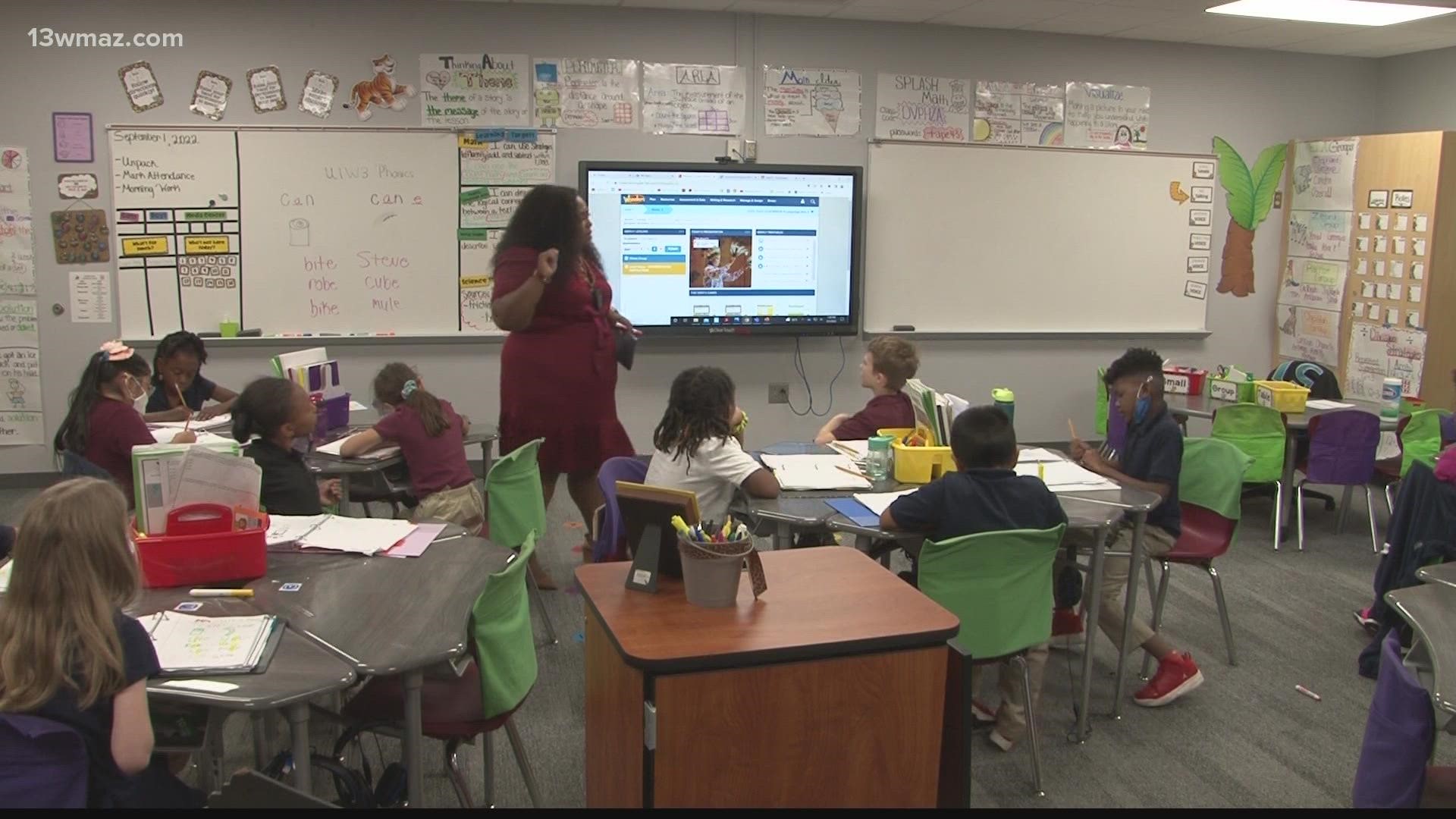MACON, Ga. — The pandemic forced a lot of students into a learning gap.
Now, new national data shows math and reading scores hit a significant dip, and that's the case across central Georgia, too.
In the span of two years, the classroom has seen its changes.
"We had quite a few students that were reading on grade level. There was not much of a significant learning gap or learning loss, the students were pretty much where they needed to be overall,” Lane Elementary teacher Iesha McCrory said.
But once students returned to the classroom after the pandemic, Lane Elementary third grade teacher Iesha McCrory says she could see the difference. New data backs up the learning loss, especially in reading and math.
"When they returned, we've seen a significant amount of loss from students trying to keep up and learn things at home themselves. When you think about it, the group that I have specifically lost a lot of their foundational years because they pretty much were in kindergarten and first grade virtually," McCrory said.
Scores around the nation show the largest average score decline in reading since 1990-- and the first ever drop in math.
Bibb County schools were not exempt from the fallout -- Georgia Milestones tests showing less than 50% of students reading above average.
"We, of course, have seen the decline in the performance during our 2021 school year. Virtual learning, yes, it worked for some, it did not work for many," Olena Stadnick-Floore said.
Stadnick-Floore, the Director of Elementary Services in Bibb County, says though the scores then weren't ideal, they're on the rebound.
“When we compare our 21 data for third graders to our 22 data, our students across the grade level have increased," she explained.
They say scores aren't quite at pre-pandemic levels, but the growth looks promising.
Stadnick-Floore credits teachers identifying gaps and the use of several learning strategies.
"It’s very important for our community also to help us. Anytime that we can encourage literacy outside of the school, all of us together, that's how we're going to close our gaps," Stadnick-Floore, explained.
It's a process she believes is already well underway.
Stadnick-Floore told us they’re gearing up for future Milestones testing by doing things like customizing learning, offering tutoring, and early intervention programs.

